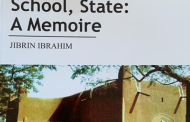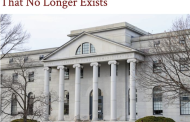Reproduced below for the interest of researchers on gender and democratisation is the communique from a 2-day capacity building workshop for women journalists. It was organised by HUMINT in partnership with Women’s Rights Advancement and Protection Alternative (WRAPA), National Association of Women Journalists (NAWOJ), PLAC AND PAAC with support from MacArthur Foundation and held April 22nd – 23rd, 2025 at the Army Officers’ Mess and Suites, Gusau Road in Sokoto.
- Preamble
The Two-Day Workshop is a manifestation of a Memorandum of Understanding between Humint Development Consult Limited and WRAPA. It was organised to further enhance capacity-building of women journalists for their effective participation in Nigeria’s democratic processes. The event drew participants from Katsina, Kebbi, Sokoto and Zamfara states. The Sultan of Sokoto who spoke on the occasion was represented by the District Head of Gagi Alhaji Sani Umar Jaɓɓi. A Professor of Accounting and Economic Policy and former Vice-Chancellor, Usmanu Danfodiyo University, Sokoto Aminu Salihu Mikailu who is also one of the directors of Humint Development Consult Ltd. was the Chairman of the Occasion. Prof. Mikailu expressed delight with the response of the resource persons who are reknowned scholars and eminent female journalists, as well as participants in attending the workshop. A Senior Fellow at the Centre for Democracy and Development, and Chairman Editorial Board, Premium Times Nigeria Online Newspaper, Professor Jibrin Ibrahim was the Keynote Speaker during the opening ceremony. Professor Jibrin Ibrahim spoke on “Media, Women and the Democratic Processes: Challenges and Prospects of Political Reforms in Nigeria”. Also on the occasion, another Professor of Political Science from Usmanu Danfodiyo University, Sokoto (Amb.) Ahmad Muhammad Wali who led the first and second technical sessions, spoke on the good virtues of timeliness as demonstrated in starting the workshop on time. Leader of the third session, Professor Aliyah Adamu Ahmad extolled the importance of training and retraining of women journalists as a key to the reforms of the democratic processes in Nigeria which the workshop seeks to encourage.
The workshop featured six paper presentations by scholars and journalists.
Paper 1: “Contributions of Female Journalists to Media Advocacy for Electoral Reforms in Nigeria” by Former General Manger, NTA News 24, Hajiya Fatima Abbas Hassan,.
Paper 2: “Gender Equity and Social Inclusion in Nigeria’s Democracy” by Dr Musa Umar, Director of Research, National Institute for Policy and Strategic Studies, Kuru, Jos.
Paper 3: “Capacity Building for Women in Leadership: The Case for NAWOJ’ by the Zonal Coordinator, Zone A, National Association of Women Journalists (NAWOJ), Hajiya Rabi Muhammad Gwadabawa.
Paper 4: “Media Programming and Grassroots Citizen Mobilisation for Credible Elections in Nigeria” by Prof. Hajara Umaru Sanda, Faculty of Communication, Bayero University, Kano (represented by Mal. Abdulhakeem Abdulganiyyu)
Paper 5: “Understanding Libel in Nigeria: Offences and Sanctions” by the Chairperson, Association of Northern Women Entrepreneurs (ANWE) and CEO, Metro-E Corporate Services, Barrister Hafsat Sahabi Dange.
Paper 6: “An Appraisal of the Opportunities and Challenges of Social Media in the Context of Media Practice in Nigeria” by the Executive Director, Centre for Information Technology and Development (CITAD) Kano, Prof. Yunusa Zakari Ya’u.
- Observations
- The representation of women in elective and appointive positions in Nigeria has been dispropotional compared to their numbers despite the efforts of different groups to reverse the situation.
- Women journalists have been playing significant roles in providing information on key electoral reform issues that are awaiting consideration.
- Through reportage and anchoring public awareness programmes, female journalists have been enlightening the public on the need for electoral reforms and their impact on promoting credible elections to support Nigeria’s democracy.
- On agenda setting and issue framing, female journalists play important roles in shaping public discourse through reportage and documentaries highlighting the importance of electoral reforms and the need for policies that promote transparency, accountability and good governance.
- Despite its contributions to the empowerment of women leadership through strategic capacity building, NAWOJ faces numerous challenges which include limited funding, cultural barriers, political instability, insecurity and inadequate institutional support.
- Nurturing an inclusive media environment, providing mentorship and increasing institutional support for women journalists are necessary for sustaining their contributions to Nigeria’s democratic processes.
- When female journalists work together, their media can truly empower them and promote a more inclusive participatory democracy in Nigeria.
- Understanding the intricacies of defamation law is very important to journalists and related media staff in order to practice responsible journalism.
- Accuracy in information dissemination is very vital for upholding the principles of transparency and accountability in media reportage.
- Freedom of the press is not absolute as it must be guarded by professional ethics and certain legal obligations such as the defamation law.
- Libel especially on the social media, presents unique challenges in view of the dissemination of information to diverse audiences which can attract severe sanctions.
- Recommendations
- The policymakers and relevant stakeholders should device concrete measures in reversing the situation of dispropotional representation of women in elective and appointive positions in Nigeria.
- Female journalists should be given unhindered access to information in order to enable them to conduct investigative reporting for public interest.
- Goverment should device ways of addressing stereotyping and bias which undermine the credibility and impact of women journalists.
- NGOs should parner with media practitioners and invest more on issues of electoral reforms in Nigeria.
- Female journalists should be given opportunities for training and retraining, security cover, proper mentorship and funding to enable them discharge their duties in advocating for electoral reforms in Nigeria.
- Female journalists should have ample access to various digital media platforms to amplify their voices in order to reach a wider audience.
- The government should strengthen legal frameworks and enforcement of mechanisms such as National Gender Policy and the Disability Act such that strict penalties can be imposed for non-compliance.
- Nigerian government should institutionalise a mandatory gender quota system across all levels of governance to meet the 35% representation target outlined in the National Gender Policy.
- Governments at all levels and development partners should establish special funds to support female candidates and marginalised groups.
- Internal party structures should be reformed to accomodate, support and implement inclusivity as well as gender-sensitive policies.
- Media organisations should adopt clear guidelines that ensure equitable treatment of all employees regardless of gender. This includes criteria for assignments, promotions and leadership appointments to eliminate biases.
- Media organisations should create a safe-reporting mechanism for cases of harassment and discrimination to empower women journalists to speak without fear of retribution.
- There should be the strenthening of partnership between the donor agencies and the Non-Governmental Organisations for sustainable funding of women empowerment activities.
- Media practitioners, policy makers and researchers should tackle misinformation as well as support gender-sensitive practices.
- Journalists especially women should practice in conformity with the professional ethics of journalism to mitigate the risk of liability for libellous publications.
Conclusion
The workshop was well attended by 46 women participants from Katsina, Kebbi, Sokoto and Zamfara states. Apart from the paper presentations, participants rubbed minds and shared their experiences during discussion and syndicate sessions. The participants expressed appreciation to Humint and WRAPA for the opportunity offered to the members of NAWOJ to benefit from the training workshop. The participants committed to using their media platforms to enhancing electoral reforms for gender equity and inclusion in Nigeria.
Signed
Malam Bala Hassan, MNIM Zainab Abdurasheed
Director, Programme Officer, Electoral Reforms Project
WRAPA




























